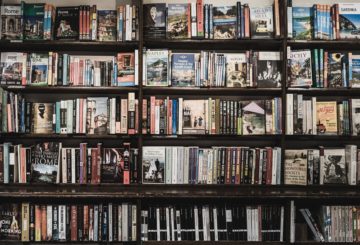Interlaken: Business as usual?
Two white swans float down the Aare River, which cuts through the city center and Untersee, the oldest district of Interlaken. Their bright color on the blue gray water mirrors the contrast between the snowy mountain peaks against the blue sky overhead. Green meadows dotted with cows and chalets complete the idyllic picture. A young family from India walks towards the bus station, while on the bridge a Korean couple enjoys the majestic view of the mountains. Women in sharply pressed business pants and colorful head coverings are seated in the horse-drawn carriage, taking in the sights and sounds of the city.
Switzerland has built a reputation for being clean, orderly and safe. According to the Interlaken Tourism Office, 66,922 guests from the Gulf States - Bahrain, Qatar, Kuwait, Oman, the Kingdom of Saudi Arabia (KSA) and the United Arab Emirates (UAE) - have stayed in hotels in Interlaken in 2023. On being asked about the number of tourists from the Gulf States, the rote answer is diplomatic: ‘we have visitors from all over the world.’
Switzerland has long been a country of poor farming communities. Crop failures caused mass emigration. In the 10th century, the spice trade took its saffron, ginger and cloves from the Far East through Venice into Europe, and muleteers brought the wares over the Swiss alps. Modern day tourism started in 1777 with Johann Wolfgang von Goethe. He described his trip through the alpine regions: “You don’t forget your travel skirt, because it is very useful in rainy weather, in fog, on high mountains where the air is usually cool, and when you have to spend the night in the alpine huts.” Rousseau’s back-to-nature philosophy coincided with the rise of Romanticism, and writers, landscape painters and naturalists flocked to the Alps. The Swiss tourism industry started and became a crucial source of income.
These days, restaurants, hotels and shops have signs in Arabic. Tourists from the Gulf States represent 413 million Swiss Francs (2017), with 25% coming from Interlaken. During the years 2012 to 2018, the number of overnight stays by guests from the Gulf States in Switzerland increased by 82 percent.
Juan, 26,is from Syria. He arrived in Interlaken in 2014 and works at restaurant ‘Des Alpes’ as a waiter. With his short, curly hair, he takes quick, short puffs of his cigarette. He speaks English, German, Kurdish and Arabic. He puts his Turkish coffee on the bridge over the Aare to free up his hands. They are constantly moving. ‘In Syria, there was no work, no money, and no shops to buy anything.’ He left Syria in 2010, alone, and spent 4 years in Erbil, Kurdish Iraq, until Isis invaded and Western businesses pulled out. He estimates 50,000 tourists from the Gulf States visit Interlaken each year.
Ronald Abu Slaiman confirms that in the summer he mainly hosts guests from the Gulf States in his Lebanese restaurant Layaly Beirut. Muhammed and Aisha from Oman, in Interlaken for the day, remember his restaurant from a previous trip. Many Gulf States tourists pass through Interlaken on their tour around Switzerland, Italy and Austria. They come to see the caves, waterfalls, take a horse-drawn carriage ride and move on. Swiss Hospitality for Guests from the Gulf States, a guide for hoteliers states: “Together with high quality and well-equipped hotels, the Arabic guest expects above all that respect be shown for Islam and its customs and habits.” It recommends that high-end hotels provide their guests with prayer mats with a built-in compass, a prayer room and halal food.
Not everyone is willing to bend over backwards to accommodate their guests. Joyce*, owner of a hotel in the rustic part of the city, enjoys the diversity of her guests. Two days ago she had a guest who had a fatwa, an Islamic death sentence, on his head. She had to have a policeman posted in front of the hotel for the duration of his stay. She believes Switzerland is unique in creating a culture of hospitality for so many cultures and offers dishes from every continent. Behind closed doors, her guests are free to do what they want. ‘But we don’t have a prayer room, and I don’t tolerate any bad behavior.’
Some locals believe the tourism industry has gone too far. Hotels cannot contain the growing number of tourists, says Saskia, 49, a local dental technician, while taking a bite from her organic protein bar. ‘I have had more gum stuck under my shoes this year than any other time before.’ Restaurants have had to close their doors because they don’t have enough personnel. Tourist spots in the mountains collect 1.5 tons of garbage per week. She concludes, ‘It has grown out of control.’
* Not her real name
Esther Arnusch is from Jerusalem, Israel. She attended WJI Europe 2024.



